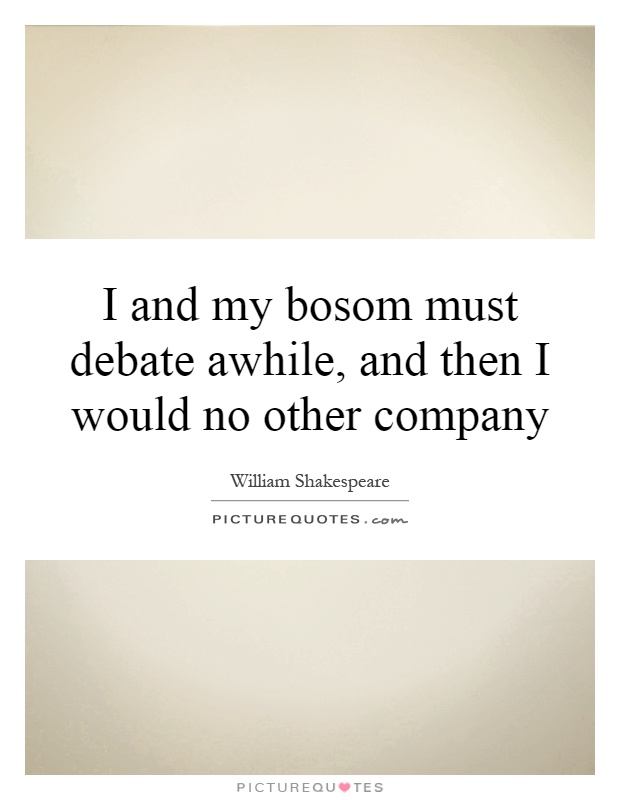I and my bosom must debate awhile, and then I would no other company

I and my bosom must debate awhile, and then I would no other company
The line "I and my bosom must debate awhile, and then I would no other company" is from William Shakespeare's play "Julius Caesar." In this particular scene, Brutus is contemplating whether or not to join the conspiracy to assassinate Caesar. He is torn between his loyalty to Caesar, whom he considers a friend, and his belief that Caesar's ambition poses a threat to the Roman Republic.The phrase "I and my bosom must debate awhile" suggests that Brutus is engaged in an internal struggle. His "bosom" refers to his heart or his innermost thoughts and feelings. He is wrestling with conflicting emotions and ideas, trying to decide what course of action to take. This inner debate is a common theme in Shakespeare's plays, as many of his characters grapple with moral dilemmas and conflicting loyalties.
The second part of the line, "and then I would no other company," indicates that once Brutus has made his decision, he will not be swayed by the opinions or influence of others. He is a man of strong convictions and once he has made up his mind, he will not be swayed by outside forces. This stubbornness and determination are characteristic of Brutus, who is portrayed as a noble and honorable man throughout the play.
The line also reflects Shakespeare's exploration of the complexities of human nature. Brutus is a complex character who is torn between his loyalty to Caesar and his sense of duty to Rome. His internal struggle is a reflection of the larger themes of the play, which explore the nature of power, ambition, and betrayal.
Overall, the line "I and my bosom must debate awhile, and then I would no other company" captures the inner turmoil and moral dilemma faced by Brutus in "Julius Caesar." It is a powerful expression of the internal struggles that Shakespeare's characters often face, as they grapple with conflicting emotions and ideas.












 Friendship Quotes
Friendship Quotes Love Quotes
Love Quotes Life Quotes
Life Quotes Funny Quotes
Funny Quotes Motivational Quotes
Motivational Quotes Inspirational Quotes
Inspirational Quotes